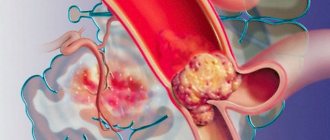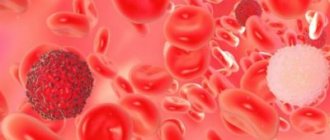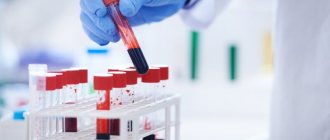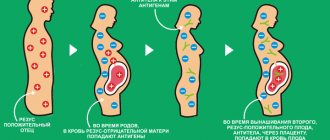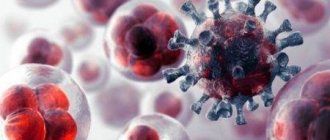What does the analysis show?
In order to determine how properly the internal organs function, an analysis is prescribed to identify total protein.
Even a slight deviation in the levels of this substance can signal hidden diseases, a lack of vitamins and minerals in the body.
In children
If we talk about small children, the following data will be the norm indicators.
Table of normal protein content in a child’s blood depending on age:
| Age indicators | Normal values, grams/liter |
| In newly born babies | 56-70 g/l |
| At one month of age | 40-55 g/l |
| 2 months | 56-60 g/l |
| Up to six months | 55-68 g/l |
| 6-12 months | 56-72 g/l |
| From 1 year to 4 years | 60-80 g/l |
| Over 5 years old | 62-82 g/l |
Attention! Sometimes protein levels may fluctuate. It depends on the timing of the birth of the baby. If he is premature, the total protein will be reduced. As the baby grows, the indicators will return to normal.
In adults, the protein norm is the same for both sexes. It is 65-85 g per 1 liter of blood.
Sometimes women's protein can be 10% less than men's. This is due to the fact that despite the consumption of protein foods, the female liver synthesizes this substance to a lesser extent.
Symptoms of protein deficiency in the body
A slight protein deficiency may not be clinically noticeable, because people are unlikely to associate eternal fatigue, fatigue and decreased performance with the protein content in their body.
But if there is even less protein, then obvious symptoms of its deficiency begin to appear:
- Weakness of a general nature - performing the most ordinary daily work begins to cause difficulties, severe lethargy and decreased performance. This is also characterized by muscle weakness and severe tremors in the muscles. Possible loss of coordination of movements.
- Severe migraines and sleep disturbances are also a manifestation of protein deficiency. A deficiency of serotonin and other hormones causes a person to have some difficulty falling asleep, and anemia and low blood sugar provoke severe headaches.
- Changes in a person’s character and behavior - a lack of hormones and enzymes significantly depletes the nervous system, and therefore a person’s character may deteriorate. Previously unusual qualities begin to appear: severe irritability, short temper, tearfulness, aggressiveness and anxiety, as well as resentment and resentment.
- Pale skin and rashes on it - a lack of protein quickly leads to anemia, and thus metabolism is disrupted. The skin becomes very dry, constantly peels, and wounds may even appear on it.
- Edema - with a reduced concentration of protein in the blood plasma, the water-salt balance changes greatly, and therefore fluid accumulates in the subcutaneous fat. First, the legs swell - their lower part - feet and ankles, and later swelling can appear on the arms and face, in the abdominal cavity.
- Very long healing of tissues and any wounds - for any recovery in the body, a sufficient amount of protein is required. If such “building material” is not enough, then tissue renewal slows down, and therefore any damage will take much longer to heal.
- Severe hair loss and uneven nails - a person’s nails and hair are constantly growing, and therefore are consumers of protein. Since they do not perform vital functions, during a protein shortage they will be the first to experience an acute shortage. The curls become very dry, brittle, a lot of dandruff appears on the scalp, and unevenness and white stripes appear on the nails.
- Loss of body weight - when the body loses protein, it tries to compensate for its lack through muscle tissue. First, the muscles quickly lose their volume and mass, followed by the loss of fat deposits.
- Disturbances in the activity of the cardiovascular and respiratory systems - with a long and significant protein deficiency, the natural functioning of many systems is disrupted. A person may be bothered by severe tachycardia, arrhythmia, shortness of breath, as well as cough and other symptoms.
Protein is low - what does this mean?
Various factors influence the decrease in protein in the blood. At the same time, this condition is very harmful for humans.
Causes
The following conditions can reduce the amount of protein:
- Dehydration of the body.
- The presence of increased physical activity.
- Taking certain medications.
- Limited intake of protein into the body through food.
- Breastfeeding period.
- The period of bearing a child.
Attention! Such shortcomings can be eliminated on your own: in some cases, improve the quality of nutrition, in others, reduce physical activity, etc.
Some foods, such as nuts, chicken eggs, meat, and fish, are excellent for increasing protein in the blood.
An important role is played by quality sleep and water drunk during the day. It should be about 2 liters per day. If the decrease in protein is affected by medications, then it is necessary to adjust the therapy.
Reference! Most often, low protein levels in tests occur in athletes, bedridden patients and nursing mothers.
Consequences
A person’s general well-being indicates a reduction in protein levels in the blood:
- he becomes lethargic
- performance decreases,
- the immune system suffers.
Attention! If the protein level is reduced by 50%, then tissue edema develops.
This is why it is so important to undergo additional examination, since a low total protein level indicates problems in the body and a possible serious illness.
Low protein in the blood, causes
The main part of the hormones necessary for the human body are polypeptides and proteins, or in other words, so-called chains of amino acids . Full functioning of the body is impossible without a certain established norm of protein in the blood. Being the main component of all enzymes, protein accounts for about 15-20% of the mass of various tissues. Proteins of different kinds take part in the necessary reactions of human organs and have distinctive manifestations. Some proteins act as catalysts in the immune defense system. Thus, the manifestation of a common allergy is entirely due to the participation of certain proteins in the body. Thanks exclusively to them, blood clotting is carried out and a normal pH is maintained. The blood also transports oxygen, carbohydrates, hormones and other elements, as well as some medicinal and other components.
It is known that a common protein is a so-called organic polymer, which consists entirely of amino acids and is the main component of protein metabolism in the body . In the case of burns or malnutrition, as well as for diagnosing malignant tumors and diseases of many human organs, the concept of total protein is used in medicine.
Causes of low blood protein
In an adult, normal total protein should correspond to – 4 – 82 g/l . however, many people may experience a decrease in total protein without causing any serious illness. This phenomenon is called in medical practice physiological hypoproteinemia and is usually detected in pregnant women (especially in the third trimester), in young children, in nursing mothers, and even during long periods of bed rest, during which the body does not receive enough protein for proper and full functioning. In the blood, the analysis of total protein can also be reduced in the presence of constant physical activity, dehydration or prolonged fasting.
The state of physiological hypoproteinemia can occur with an increase in the volume of water in the vascular bed, with a small amount of protein in consumed foods, the presence of chronic bleeding, increased protein breakdown, various inflammatory processes in the body, increased protein loss in the case of diabetes mellitus or nephrotic syndrome, fever, intoxication, malabsorption and parenchymal hepatitis. Low protein in the blood can be caused by a number of diseases and possible conditions of the body such as: diseases of the intestines and stomach, previous surgical interventions, serious poisoning of the body, malignant formations, severe constant bleeding, injuries, extensive burns, thyrotoxicosis, undergoing infusion therapy, ascites, cirrhosis and liver tumors, hereditary diseases, pleurisy, fever. If the total protein level is below fifty g/l, the patient may develop swelling of tissues and organs.
Be carefull! A deviation from the generally accepted norm of protein concentration in the blood serum indicates nothing other than some disturbances in the body, and only with a complete examination can the real cause of the decrease in protein be established and a possible disease prevented. In such cases, it is strongly recommended not to practice self-medication, since low protein in the blood is usually caused by many different factors, and only an experienced doctor will be able to give the correct explanation of the result of the biochemical analysis and help your body, by adjusting the correct treatment, reach the required healthy norm.
https://hematologiya.ru/world-news/nizkijj-belok-v-krovi-prichiny.htm
Dangerous decline
But there is dangerously low protein, which leads to protein breakdown and excretion in the urine.
The following pathological conditions lead to low levels of total protein:
- Liver diseases.
- Diseases of the intestinal tract.
- Cancer diseases.
- Diabetes.
- Kidney ailments.
- Inflammatory diseases.
- Burns and frostbite.
- Infections.
- Intoxication, which is accompanied by prolonged vomiting, diarrhea and dehydration.
- Loss of large volume of blood.
- Injuries.
- Tendency to swelling.
- Autoimmune diseases.
- Metabolic disease.
- Pancreatitis acute and chronic.
- Malabsorption syndrome.
The role of protein in the body
The most important characteristic of a person’s health is the level of protein in the blood. Proteins are essential for regulating the blood clotting system and building new cells.
Total protein in the blood consists of a combination of several structurally diverse components: albumins and globulins.
The human body must contain at least 15% protein by weight. A decrease in the amount of protein in the blood is considered a sign of the occurrence of a pathological process in internal organs and systems.
Gradually, protein deficiency leads to disruption of the immune system and a decrease in the rate of cell renewal.
A person with a low protein content in the blood becomes susceptible to infectious infection. Much less often, protein analysis shows an increased result.
The list of diseases that cause an increase in the amount of protein is small. During treatment, the protein in the blood decreases to normal levels.
Protein is responsible for the following functions:
- maintains blood in a fluid and viscous state;
- responsible for clotting;
- regulates body temperature;
- controls the maintenance of a constant acid-base balance;
- keeps blood elements suspended in plasma;
- participates in the production of immunoglobulins;
- transports hormones, lipids, mineral components and other important substances.
READ Name of blood test for parasites
A change in protein content in the blood indicates the development of a pathological process. Most often, hypoproteinemia is observed - a decrease in proteins.
Before increasing the protein level in the blood, it is necessary to establish the exact reason that caused its decrease.
A biochemical blood test for total protein content is prescribed in the following situations:
- for pathologies of the liver and biliary system;
- in case of infectious infection - in acute and chronic periods;
- with extensive burns of the skin;
- with poor nutrition;
- for other specific diseases.
Protein analysis allows timely detection of malignant neoplasms, diseases of the gastrointestinal tract, urinary system and other pathological pathologies.
Diagnostics and norms of the indicator
Blood serum tests to assess protein concentration are carried out to diagnose pathologies, monitor the dynamics of treatment, prevent diseases, and during the follow-up of pregnant women.
Indications for testing the level of total protein are:
- Joint diseases.
- Assessing the results of patient treatment after burns.
- Prevention of gestosis in the second half of pregnancy.
- Diseases of the cardiovascular system.
- Suspicion of an oncological process.
- Pathological processes in the liver (presence of hepatitis, including viral ones).
- Chronic kidney diseases (pyelonephritis, glomerulonephritis, chronic renal failure).
- General exhaustion of the body due to excessive weight loss (anorexia, cancer cachexia).
- Diagnosis and dynamics of treatment of acute or chronic infectious diseases.
- Preparing for the study:
- Do not eat 10-12 hours before the test.
- Donate blood in the morning.
- Avoid protein foods 4-5 days before the test.
- Do not take medications on the day of the test. The exception is drugs that are vital for the patient.
- Avoid physical activity the day before the test.
- Do not drink alcohol or smoke before taking the test.
- Do not drink coffee, tea, or juices on the day of the study. You can only drink still water.
- If you have symptoms of an infectious disease, inform your doctor or nurse at the medical facility.
Venous blood is taken for analysis. This analysis is called biochemical; its results are used to evaluate the level of biological substances in the body.
The time it takes to receive results varies depending on the medical facility. Biochemical analysis takes 4 to 7 days to prepare. Indicators can change not only with the development of pathological processes, but also for physiological reasons.
These include:
- Environmental impact (sharp climate change, too hot or, conversely, cold weather).
- Floor.
- Genetic predisposition.
- Long sleep.
- Nutrition.
- Physical exercise.
- Pregnancy.
In an adult
Total protein is low in the blood (the reasons for this in adults can be numerous) under the influence of the following factors:
- Chronic diseases.
- Hormonal background.
- Physical exercise.
- Malnutrition.
For an adult, the normal value of protein in the blood is from 66 to 83 g/l. In people over 65 years of age, protein levels range from 60 to 80 g/l. Indicators may vary depending on age and gender. In women, protein levels may depend on the activity of hormones.
In children
In children, a decrease in total protein may be a physiological phenomenon that does not require any treatment. With age, these indicators are adjusted and return to normal.
The indicators by age are as follows:
- Newborns 35-60.
- Children under 1 year 50-65.
- Children from 1 to 2 years old 55-70.
- Children from 2 to 14 years old 65-80.
Fluctuations in total protein in children may indicate acute infections and kidney disease. These pathologies are most common in this age group. If there are changes in the blood test, a thorough diagnosis and treatment of the cause is carried out.
In pregnant women
A biochemical blood test is a mandatory test during pregnancy. With its help, you can identify deviations from the norm that can lead to complications in the health of the mother or fetus.
A blood test is carried out once a month when visiting a antenatal clinic, as well as when pathological conditions are detected (detection of protein in the urine, presence of edema). Normally, the level of total protein in the blood of pregnant women ranges from 64 to 80 g/l.
During pregnancy, a decrease in protein in the blood is very common. As a rule, this should not be alarming if the decrease is small.
Most often, a decrease in total protein occurs in the 1st trimester of pregnancy, since during this period the woman’s body is just beginning to adapt to its new state. Often women experience toxicosis in the first half of pregnancy in the period from 5 to 16 weeks. The pregnant woman is worried about nausea and vomiting, food intake is disrupted.
There may also be a decrease in total protein in the 3rd trimester, due to the increased load on the body. During this period, special attention should be paid to the condition, as the load on the kidneys increases. Often women after 30 weeks develop gestational pyelonephritis.
This is a condition in which the passage of urine is disrupted due to stenosis of the ureter in an older child. Because of this, intense inflammation develops, in which the amount of protein in the urine increases and in the blood decreases.
But there are pathologies in which hypoalbuminemia is a serious symptom. A decrease in protein is observed with gestosis. This is a dangerous complication of pregnancy, which can lead to the development of preeclampsia and eclampsia. With the development of gestosis, an increase in protein is observed in the urine, and its concentration in the blood, on the contrary, is low.
A decrease in indicators is observed with an unbalanced diet and toxicosis. Often a woman cannot eat properly due to constant nausea or vomiting. This condition can be corrected with medication or diet.
Hyperalbuminemia during pregnancy is observed during acute infectious processes and dehydration.
Protein during pregnancy: norm and deviations
During the 9 months of carrying a baby, a woman undergoes many tests. Several times the expectant mother is prescribed a biochemical blood test. This is a simple, but quite informative study, based on the results of which you can evaluate the course of an interesting situation. One of the indicators that reflect a woman’s health status is protein level. During pregnancy, any deviations of the protein value from the norm indicate the possible development of pathology due to the woman’s illness.
How to increase protein in the blood - medicine and folk recipes to protect your health
proteins in the blood is one of the indicators of biochemical research. Peptide compounds take part in many vital processes. Their quantitative content in the blood shows how protein metabolism occurs in the human body. Biochemical analysis of protein in the blood is used to diagnose diseases.
Attention! Some medications lead to an increase or decrease in the level of proteins in the blood. You must inform your doctor about this.
Why do you need protein?
The human body consists of 62% water, 16% protein, 16% fat, 6% minerals, about 1% carbohydrates and other nutrients. The most important proteins in the body are globulins and albumin. Albumin is a common peptide. When they talk about low protein in the blood, they mean albumin.
Given the many conditions that cause hypoalbuminemia, it is important to maintain peptide levels at optimal levels. Another important protein in the body, called globulin, is part of the immune system.
Causes of low protein concentration in the blood
A common cause of low levels of peptide compounds in the blood is malnutrition. Insufficient dietary protein intake results in a life-threatening condition called Kwashiorkor. Found in poor regions. However, it can be easily cured with a proper meal plan and a high level of protein intake.
Important! Often, in women in the first trimester of pregnancy, protein in the blood decreases in a short period of time. In this case, you don’t need to think about how to increase protein in the blood, because this condition is considered a physiological norm.
Most proteins, including hormones, enzymes, and globulins, are synthesized in the liver. Pathological conditions such as cirrhosis and hepatitis damage the liver and lead to a decrease in the amount of total protein in the blood. This condition leads to edema, ascites and hemorrhage.
Most waste is disposed of through the kidneys. They have a glomerular membrane that selectively secretes fluid while storing proteins and electrolytes in the body.
In any setting where the membrane is damaged, the body loses protein through nonselective excretion, resulting in hypoalbuminemia. Kidney diseases include glomerulonephritis and nephrotic syndrome, which causes swelling.
Albumin levels in urine are measured. When the loss of peptides exceeds 30 mg/day, edema forms.
If the body is unable to absorb nutrients, this leads to protein deficiency. Food passes through the digestive system, but the body is unable to break down enzymes, resulting in a lack of sugar, protein and fat. One of the diseases that lead to malabsorption is Celiac disease.
How to increase protein in the blood?
Muscles and the body need proteins to efficiently use energy. During digestion, the human body breaks down peptide compounds into amino acids. Each hormone that affects human metabolism has a peptide structure. Without protein compounds, hormone synthesis is impossible. Hypoalbunemia or hypoglobulinemia is manifested by a certain symptom complex.
https://www.youtube.com/watch?v=mV1DUn6CZ6w
Symptoms of low levels of peptides in the blood:
- Chronic fatigue syndrome.
- Edema.
- Weakness.
- Depressive states.
- Brittle nails and hair.
- Dryness of the epidermis.
How to increase protein in the body? The body needs about 8 grams of protein per kilogram. Divide your body weight by 2.2 and multiply by 0.8 to calculate your protein needs. Eat foods rich in protein: fish, red meat, chicken, legumes and nuts.
Avoid alcohol and other substances that cause liver damage and protein deficiency. If you have problems with the liver and kidneys, you need to undergo examination and take medications.
Some diseases affect the body by causing protein loss. This is an oncology that uses up the body's nutrients, leading to protein loss and causing cachexia. Hyperthyroidism leads to increased metabolism and low albumin.
Advice! Chemotherapy, previous surgery, and certain medications are the reasons why the concentration of albumin in the blood quickly decreases. Before or after performing the above procedures, you should consult your doctor.
